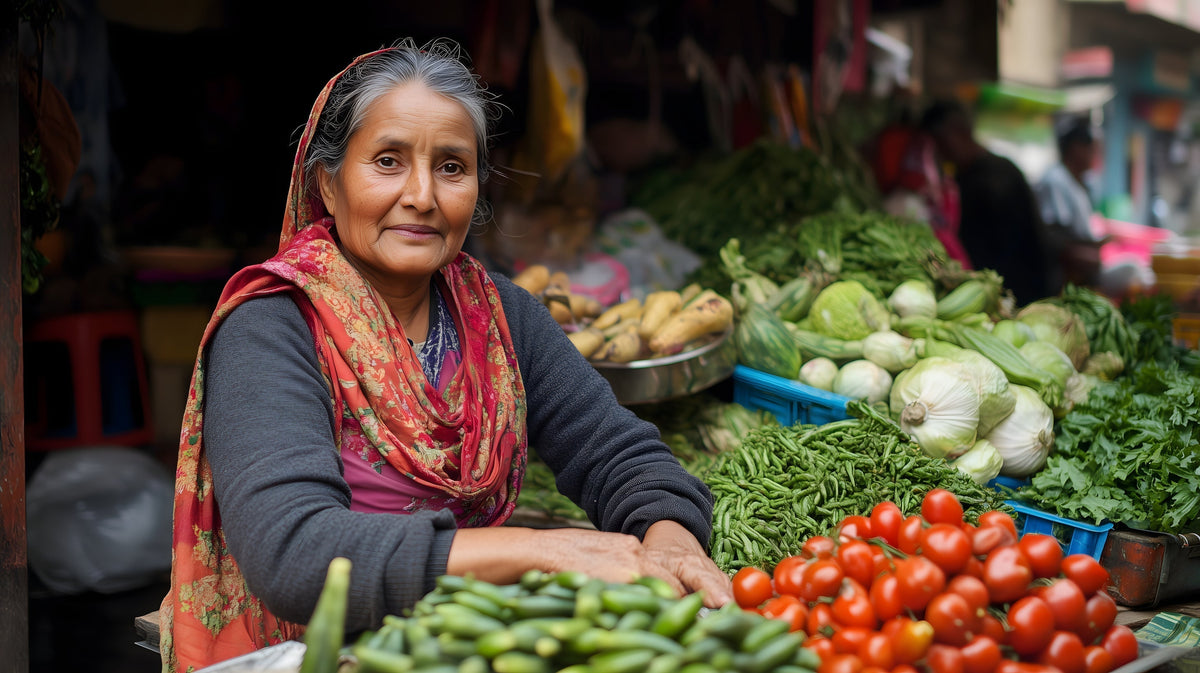I still remember the first time I skipped my usual trip to the supermarket and walked into the vegetable mandi near my home. I bought tomatoes from a woman who had grown them in her backyard. I spoke with a farmer who had travelled from the outskirts of the city, riding his scooter with baskets full of greens. I saw coriander still moist from being freshly harvested, and brinjals with the kind of deep purple shine you never see in a plastic-wrapped aisle. Suddenly, the vegetables in my bag weren’t just food, they had stories, faces, and came from just a few kilometers away. That moment changed how I see buying locally. It’s not just beneficial for the community; it’s a decisive step toward sustainability.
We often think of sustainability in terms of electric vehicles, solar panels, or metal straws. But one of the most potent and practical things we can do every day is support local businesses. It’s not just about money staying in our neighborhood (though that's important). It’s about reducing environmental impact, promoting ethical production, and fostering strong, interconnected communities.
1. Reducing Carbon Emissions - An Environmental Perspective
When we buy local, we reduce the travel distance our products take to reach us. The leafy greens I buy from the street vendor are brought in from villages nearby—no long truck journeys, no air freight, no excess packaging. That’s a win for the environment.
Most people don’t realize how far our food or clothing travels. Imported fruits or fast fashion often have a carbon footprint that spans continents. Local sourcing shrinks drastically. Less transport means fewer emissions, simpler logistics, and fresher goods.
The same goes for clothing and accessories. Many local Indian brands use organic cotton, handwoven khadi, or upcycled fabrics sourced and stitched within the state. Every local product is a small step toward a cleaner supply chain.
2. Building a Resilient Local Economy
Each time we choose a kirana (grocery) store, a sabziwala (vegetable vendor), a tailor, or a neighborhood service, we’re reinforcing our own local economy. Small businesses often support other small businesses—a chai stall buys milk from the local dairy, gets snacks from a nearby bakery, and hires help from the same area.
Take my favorite chai adda. They source masala blends from a home-run spice business, and the biscuits they serve come from a local bakery run by a mother-son duo. Their success supports multiple others around them.
Compare that with shopping from a large retail chain, where most profits are allocated to corporate headquarters, while vendors are spread across the globe. Shopping local means your rupee circulates in your own ecosystem.
3. Ethical Production and Transparency

One of the biggest benefits of buying local is visibility. You know who made your product. You can ask questions, understand how it was made, and ensure your money supports fair wages and safe working conditions.
When I visit artisans to source fabric for Karma Totes, I see the work firsthand. I know their children go to school, that they’re paid fairly, and that they take pride in what they create. It’s impossible to get that connection with a mass-produced product from a faraway factory.
In India, we’re surrounded by craftsmanship and talent—from weavers in Pochampally to blue pottery artisans in Jaipur and terracotta potters in Molela, Rajasthan. Supporting these communities goes beyond charity, it’s a savvy, sustainable choice.
4. Strengthening the Social Fabric
There’s a certain joy in walking into your regular store and being greeted by name. Local businesses are embedded in the social life of our communities. They support local causes, sponsor school events, keep our streets lively, and often become trusted spaces in ways large retailers can’t.
During the COVID-19 lockdowns, I witnessed this firsthand. Our vegetable vendor continued deliveries, our neighborhood dairy adjusted its hours to serve us better, and local tailors began stitching masks. Large businesses paused, while local ones adapted. Supporting them goes beyond finances; it encompasses trust, relationships, and resilience.
A Real-Life Example: My Tote Bag Epiphany

Running Karma Totes made this even more real for me. We work with women from low-income backgrounds, many of whom had no prior employment. Training them, seeing their confidence grow, and watching their children attend school while they earn with dignity—that’s the impact of keeping production local.
We use fabric sourced from local mills, partner with regional printers, and design with sustainability at the core. Each tote bag reflects the work of multiple local hands. When someone purchases from us, they are supporting a network of real people, not just a faceless corporation. That’s the beauty of buying local.
It’s Not Always Easy—But It’s Worth It
Yes, sometimes it means paying a bit more or going out of your way. Maybe you won’t find every fancy variety of lettuce or the latest gadget. But what you get in return is freshness, accountability, and a sense of community.
And remember, the term "local" doesn’t always refer to your immediate neighborhood. It could be your city, your state, or even a rural cluster where production happens ethically and sustainably. The aim is to stay connected, not just logistically but emotionally.
Final Thoughts
Every penny we spend represents a choice. When we opt for local, we embrace sustainability, fairness, and resilience. We preserve traditions, support thriving skills, and strengthen communities.
The next time you buy vegetables, think of your friendly sabziwala instead of a supermarket chain. When you need a gift, opt for an artisan-made product over clicking "Buy Now" on a large app. Shake a hand, exchange a smile, and take home something genuine.
Ultimately, sustainability is not just about the planet; it is essentially about people. It begins here, in the places where we live, work, and belong.












0 comments